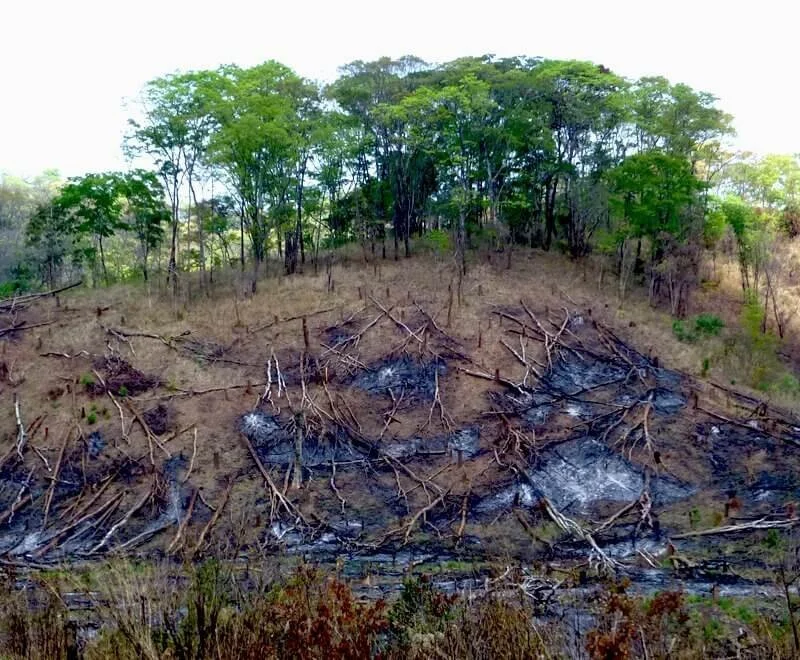Malawi: Tackling deforestation & Teaching The Value Of Tree-Planting
Malawi is a landlocked country in southeastern Africa.
It stretches about 520 miles from North to South, about the same distance as the crow flies from Dundee (Scotland) to Brighton (England), and varies from 5 miles to 100 miles wide, making it about the same width as Wales (UK). Making it the equivalent in total land mass to Portugal.
Malawi’s population is a touch over 19 million - a number that is expected to double by 2038, with the population growing at 2.7% annually.
By comparison, Portugal has a population of 10 million, with an annual growth rate of just 0.2%.
Now in a country where the population relies on the land for food security, shelter, warmth, and economic security - protecting Malawi’s environment is critical. Instead, trees are being cut down at an alarming rate for subsistence, and that has to change.
What is happening and why?
Malawi is currently in a deforestation crisis.
89% of Malawians don’t have access to electricity, so the majority of inhabitants turn to wood burning to meet their energy needs.
In urban areas, there is a growing demand for charcoal to fulfill electricity requirements. And of course, charcoal is made by heating wood at extreme temperatures, meaning wood is required as both the ingredient for charcoal and to burn to create the charcoal.
Economically, there is international demand for hardwood. As this valuable resource is one that anyone can get their hands on, the cutting down of hardwoods takes place on an illegal and commercial scale. Once the forestry is cleared, it is then replaced by agriculture driving the percentage of land available for trees down still further.
So now that we’ve covered how human activity is directly affecting carbon-capturing forests, what of the impact on the natural world?
Well, unfortunately, this rapid deforestation has created an increasingly swift depletion of natural wildlife and dwindling biodiversity throughout the country. Species like Lions, Leopards, Kudu, and Black Rhionosarus are suffering.
Fewer trees, and their soil-binding roots, exposes the already fragile topsoil. During the wet months, this leads to annual flooding causing, at last count from government data, 923,000 people to lose their homes. Not only this but as the national sewage infrastructure is not particularly resilient, cholera outbreaks are not an infrequent occurrence.
With the government under-resourced, a population growing at 2.7% annually, and limited action taking place to protect natural resources, Malawi’s problems are only getting worse.
What are we doing?
Tree planting we fund in Malawi provides a long-term solution to deforestation while providing new economic opportunities for its citizens.
The project is planting thousands of fast-growing trees with farmers, schools, and community groups all taking part to provide a sustainable source of firewood and timber for local people.
However, this isn’t just about planting trees.
It’s about changing the way people think about their natural environment and the activities that are causing deforestation, and teaching new ways to value the natural resources available. It’s about creating their future.
To do this, we have to offer both alternatives and incentives, and that’s what the project we support in Malawi is centered around.
One such example can be found in fruit trees.
Guava, Papaya, and Mango trees are being planted to provide an economic incentive to protect them. The fruits, as well as being rather tasty, can be sold, making the trees foundational within their communities.
Over time, the trees planted will be one small tool to counteract the effects of deforestation in Malawi, and more importantly, help support the lives of the Malawi people.
So…
the trees planted in our project will:
Support the economy
Support national biodiversity
Bind the topsoil and reduce soil erosion
Help reduce the impact of flooding
This helps protect the land, support the people, and our planet’s future can become a more positive place 💚





